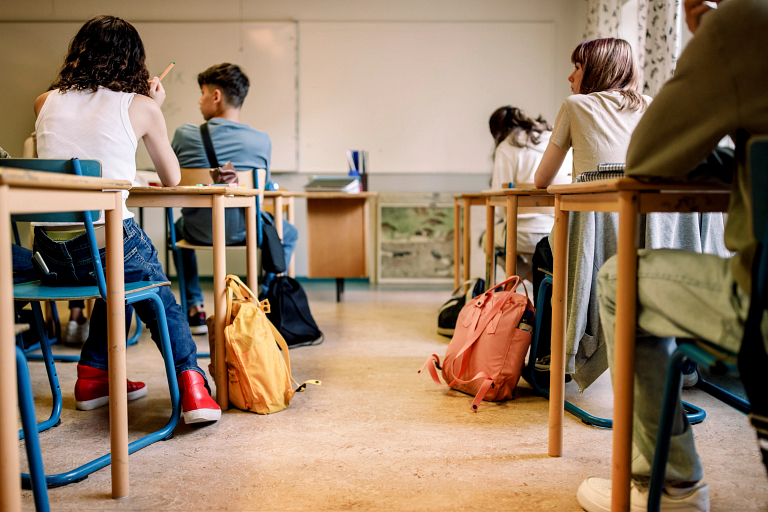Indiana high school students with disabilities who spent 80% of their educational time in general education classrooms scored higher on state reading and math assessments and were better prepared for postsecondary education and employment opportunities than their peers in less inclusive settings, according to a new study by Indiana University researchers.
"We are currently in a time when the experience of 'community' is being stressed in multiple ways in our society," said Hardy Murphy, study co-author and a clinical professor in the School of Education at IUPUI. "Changing and elevating our expectations of what students with disabilities are capable of lies at the heart of people with disabilities contributing to and benefitting from being a part of our community experience, beyond K-12 education. Including students with disabilities in their school communities with their general education peers is an important place to begin this transformation. These results show that it is as much a moral and ethical question as it is an educational one."
The study, conducted by IU’s Center on Education and Lifelong Learning, one of seven research centers at the Indiana Institute on Disability and Community, was recently published in the Journal of Special Education.
Led by Sandi Cole, lead author on the study and director of the Center on Education and Lifelong Learning, researchers used statewide student and school demographic and outcome data to investigate the relationship between high- and low-inclusion educational settings and the academic outcomes of students with disabilities. High inclusion was defined as 80% or more educational time spent in the general education classroom. Low inclusion was defined as less than 80% of educational time spent in the general education classroom.
The new study is the second phase of their 2020 study, which looked at special education placement and academic outcomes for Indiana students in third to eighth grades with primary disabilities including cognitive, learning and emotional disabilities; autism spectrum disorder; blindness; and deafness. In that study, students who experienced more inclusion demonstrated significantly higher achievement on state assessments than students experiencing less inclusion -- regardless of the disability category.
Given the previous study's finding in favor of high inclusion related to student success, the new study assessed whether the same pattern existed for high school students with disabilities, focusing on a cohort of Indiana students who were eighth graders in 2013 and graduated high school in 2018. A statewide comparison of student achievement in English/language arts with a cohort sample size of 23,796 and math scores with a sample size of 23,940 students in low- and high-inclusion placements was initiated using ISTEP+, the state assessment tool used for all students in Indiana. Students identified for the state’s alternative assessment (approximately 1% of students with disabilities) were excluded from the study. Additionally, because diploma type often reflects the curriculum path of high school students, the study used this data to investigate relative differences in preparedness for post-secondary transition related to placement.
Key findings of this study include:
- Comparisons of 10th grade ISTEP scores yielded highly significant results. Students with disabilities who spent 80% or more time in the general education classroom scored an average of 24.3 points higher in English/language arts and 18.4 points higher in math than their peers in low-inclusion settings.
- Students with disabilities in high-inclusion settings were 22% more likely than their peers in low-inclusion settings to graduate with a Core 40 diploma by passing the state assessment rather than receiving a waiver. Researchers said this suggests these students were more prepared for successful post-secondary educational and employment opportunities.
"It is clear from these two studies that place matters," Cole said. "By using a propensity matching methodology, we can state with great certainty that students with disabilities have better outcomes in inclusion settings than their peers in more segregated settings. As we noted in the paper: ‘We cannot, as a society, afford to continue to support policies and practices that result in academic failure, limited post-secondary options and continued separation and marginalization based on disabilities. We can, however, accept the ambitious agenda to transform educational systems to create inclusive school environments, maximize student participation and increase the achievement of students with disabilities.'"


